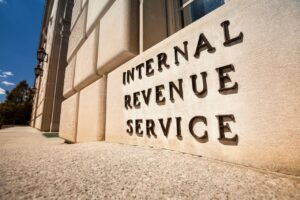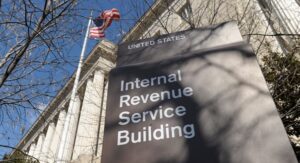Way back in April 2020, as part of the COVID-19 pandemic response, the IRS collections and enforcement processes went idle. No pursuit, no attempts to collect, no liens, no levies, nothing.
But now that things are reopening and cranking up again, guess who’s back.

The IRS.
Beginning summer 2021, the IRS restarted its suspended collections and enforcement operations. Balance due notices, tax liens and levies began showing up in taxpayer’s mailboxes across the country again. Phase One – Notification – is now well underway.
The IRS knows it is behind. The backlog of unprocessed returns plus the pile of unsent collections notices that are just recently going out has them scrambling to catch up. You no doubt have heard news stories about the hiring spree the IRS has been on, adding hundreds, even thousands, to its ranks to address the issue.
With Phase One, the IRS has given the taxpayer time to react and address their tax issue. It’s not a whole lot of time (usually 30 days), but there is a window of opportunity. It is absolutely in your best interest to take that opportunity and resolve your tax problem on your terms. There are more options available to you when you are proactive and resolve the issue in the way that is best for you.
*Note: Although you may receive multiple notices in the mail from the IRS, it is best to act as quickly as possible and not wait until the “final” notice. The longer you wait, the less flexibility you will have to resolve the issue. The time window to file for a hearing or an appeal may pass the longer you wait to act. It is critical to understand your options and take action as early on in the process as possible.

And you definitely want to at least start the resolution process before you get to Phase Two – Enforcement. That’s when the IRS starts garnishing your paycheck, issuing liens and levies and starts seizing assets and property to settle your tax debt. By the time you get to this point, your options are limited; terms are getting dictated to you instead of being able to resolve the problem on your terms.
But wait, there’s more. In previous posts, we’ve discussed the focused pursuit by the IRS of high-income non-filers (HINF), otherwise known as HiDeF/Operation Surround Sound. These are taxpayers with an income of $100,000+ and have not filed federal tax returns. This is just one of several enforcement priorities for the IRS in addition to the usual collections and enforcement of unpaid taxes and unfiled returns.
In other words, the IRS is coming to collect what is theirs. And you could be their next target.
One Last Thing
Don’t wait until it is too late. If you are getting notices from the IRS, don’t ignore them and stick your head in the sand. Take back control of your tax issues and resolve them on your terms.
